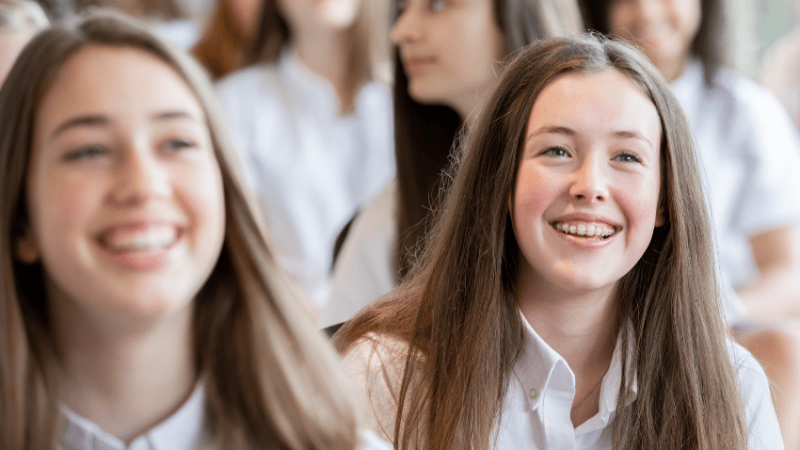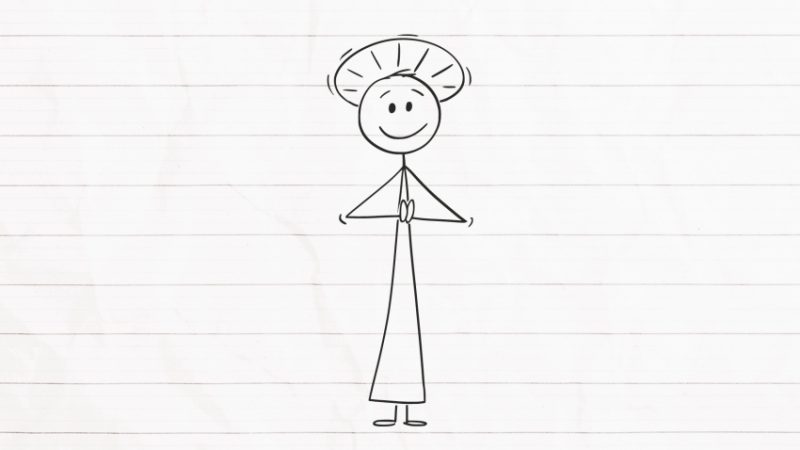Alternatives to university – What are students’ other options?

As adults, we know uni isn’t the ‘be-all and end-all’ of our students’ post-school plans, notes Hannah Day – but has anyone told them that?

- by Hannah Day

Increasingly, I’m seeing our smarter and more engaged students looking for alternatives to university. They want to go from college directly into work.
The reasons can vary, but they all face the same problem. Unlike the UCAS route, which gives you one form for over 65,000 courses, those looking at work and apprenticeships are faced with a different application process for each option they choose to pursue.
As colleges, how should we therefore go about making sure we offer relevant support that can help our work-focused students navigate these varied paths?
Prepare the student
When talking to some ex-students who took the work route, several came back with a common observation – that they felt uni had been presented to them as the option, with little mention of alternatives to university.
I knew that we had, in fact, talked to them about the full range of options available, which made me wonder words such as ‘apprenticeship’ are fully understood. We may need to do better at laying out students’ possible post-school routes, but that will only be valuable if we clearly explain what each one actually means.
Next, we need to prepare students more fully with the practical elements of their applications. Uni students routinely have their personal statements read and re-read until they’re precisely presented celebratory accounts. Are other students’ CVs and covering letters given the same level of focus?
You may be able to stream students into different tutor groups depending on the routes they have selected, but this is tricky for the many who won’t have made up their minds – so ideally, you’ll need to prepare for both options.
Either way, lay out a given program as best as you can, ensuring that students complete not just the basics but also receive personalised careers advice, guidance on how to search for jobs online and mock interview practice. Remember that they will additionally need help with how to present themselves and interact professionally.
Explain what initial information will be most important to know when they enter a new workplace, what to do if they’re unsure when in a working environment, and the roles played by mentors and unions. What may be obvious to us will be all new to them.
Prepare the parents (and ourselves)
One ex-student I spoke to wished that the college had communicated with her parents and allayed her mother’s concerns: “My grandad has been to Oxford; mum thought I wasn’t going to go anywhere if I didn’t go to uni, but now she is so happy, and can see I made the right choice.”
As teachers, we tend to be the products of a university education and can often be ‘uni snobs’ (previously guilty). However, I know now that university is only better if it’s the right choice for the student. I’ve worked hard to overcome my own biases, and will actively help parents, when needed, to do the same when it comes to alternatives to university.
One simple way is to celebrate our non-uni alumni as much as those with letters after their names. Do you know of any ex-students with notable accomplishments achieved via a vocational route? Could they be persuaded to engage with the school, and inform and inspire your next set of leavers?
These steps will help us to better prepare our students. With a well-organised and relevant programme in place, we’ll be able to more fully demonstrate the value that all routes have, and encourage greater confidence in parents, whichever route their child chooses.
Prepare the workplace
This area is so much bigger than our own institutions – one that calls for a mix of both attitudes and policy.
As someone specialising in creative education, one reason I’ve found the ‘work route’ hard to grapple with is the frequent lack of obvious links and opportunities – which to me, makes no sense. Website designers, effective social media managers, illustrators and graphic designers continue to be in high demand, making these roles ripe for work-based training.
For now, however, the only local option open to my students remains digital marketing. Despite government promises, the creative industries are still a hugely underdeveloped area within the field of apprenticeships.
If you’re the teacher of an academic course, be clear as to what jobs can emerge from your area of study and work back from there. Are there any related apprenticeships students could pursue? Who are your local providers, and how can you work better with them?
One route we’ve found to be successful for us is to make links with small local businesses who want college leavers they can train. While this doesn’t provide formal qualifications, it echoes the old apprenticeships model and can work very well.
We’ve built relationships with a number of local businesses via our annual careers day. Students get to take part in initial meetings with businesses that are relaxed, but have previously resulted in employers later asking students to formally apply for work.
Irrespective of whichever approaches may be right for your school and students, the key is to not see work as a second-class route, but rather as the high value option it is.
Case Study 1: Had Davies, Self-Employed
Studied
Photography, fine art and graphic communication A Levels, 2018-2020
Career path
Founded his own Had Davies clothing and accessories business while still at college
Why not university?
“I went to uni for one week, but returned due to COVID leading to uncertainty around studio access. I knew I didn’t want to go, but had had no advice on freelancing and didn’t know what else to do.”
What made you opt for university initially?
“Everyone I knew was going to uni. I didn’t know there was another option. If you want to do arts, the pathways are very limited where I live.”
What do you wish college had done to better support you?
“Let me know about more alternatives to university. Options were either ‘go to uni’ or ‘do an apprenticeship’. Neither were right for me. A job with opportunities was what I would have liked.
Something that offered career routes through experience. I didn’t know that being self-employed was something I wanted to do, but lockdown while I was still at college gave me so much time to work on my business. I found out what I wanted to do while I was doing it.”
Non-uni highlight so far
“Seeing my original pieces selling in both John Lewis and Battersea Power Station.”
Your personal top tip?
Don’t worry about what everyone else is doing. Plus, online courses are a great – and more affordable – way to keep learning new skills.
For more information, visit haddavies.co.uk
Case Study 2: Amelia Sayce, apprenticeship
Studied
Graphic communication, English literature and sociology A Levels, 2020-2023
Career path
Digital marketing apprenticeship, The Den Kit Company
Why not university?
“I’m a practical person, learning though doing. I completed some initial research into uni, as no one mentioned apprenticeships, but I knew I wanted to work.”
Do you feel you made the right choice?
“Yes, definitely. I visited a friend who’s at uni, and met people there doing the same thing as me, but not enjoying it – and not getting paid to do it.”
What do you wish college had done to better support you?
“It was only because my tutor talked about alternatives to university like apprenticeships that I started looking into them. I’d have liked college to have given me more input with CV writing and what’s expected at job interviews. I also wish they’d talked to us about how pay works, and the paying of tax and pension contributions.
Non-uni highlight so far?
“The independence – being given design tasks for marketing and then seeing them online. I helped design the Christmas newsletter which was sent out to people working in PR.”
Your personal top tip?
“Get in touch with the training place first, even if they don’t have any jobs advertised. They can work with you to find the right placement.”
For more information, visit thedenkitco.com
Hannah Day is head of art, media and film at Ludlow College







